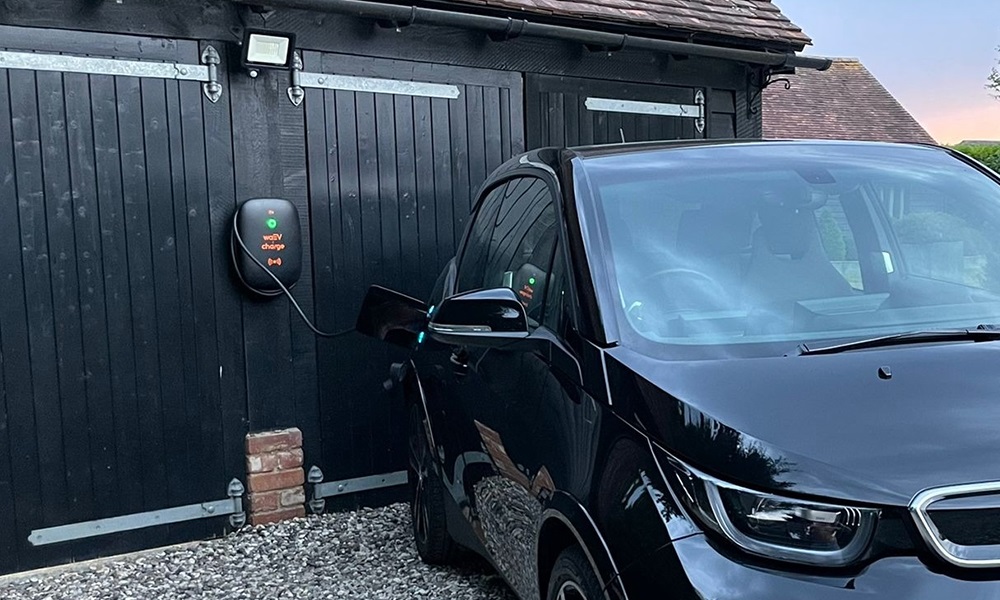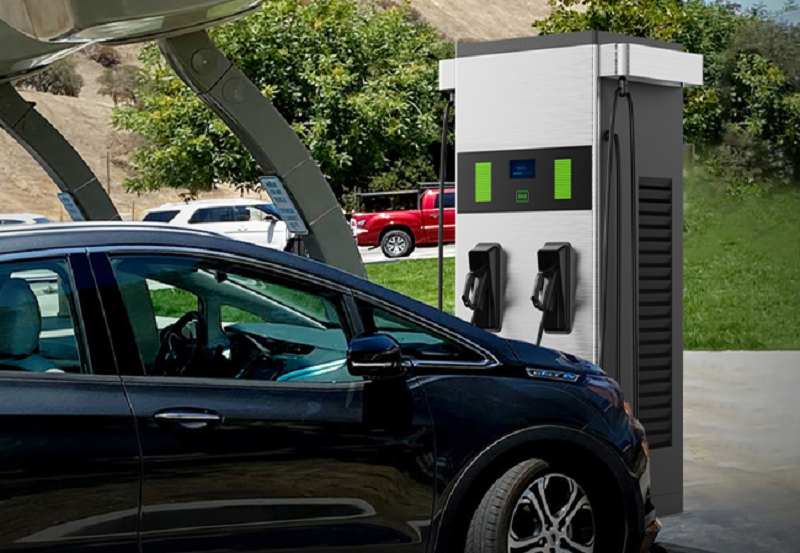
Electric vehicles use an entirely distinct energy source than fuel vehicles do: electricity as their energy source versus non-renewable petrol and diesel. Facing energy shortages coupled with an increase in EV use, traditional petrol stations find themselves facing unprecedented uncertainty about their business plans for catering to electric vehicle drivers.
Can gas stations make an impact with electric vehicle charging solutions? In terms of sustainable energy development, the transition from conventional to electric vehicles is inevitable. Let us now examine five reasons why gas stations should consider adopting such charging solutions.
What Are Gas Station Charging Solutions?
In contrast to conventional fuel pumps, petrol station charging solutions come equipped with EV chargers, which allow users to conveniently recharge their EVs during short breaks or rest stops. Furthermore, petrol station charging solutions combine traditional petrol stations and EV charging facilities into one new type of gas station,which uses existing infrastructure while meeting customer demand for charging facilities for electric vehicle market needs.
Why Do Gas Stations Require Charging Solutions?
At present, traditional petrol stations face numerous obstacles:
1. Decreased customer use.
2. Strict competition among stations necessitates providing varied services so as to draw more customers in.
Traditional petrol stations remain central in providing fuel-filling services to vehicles. Their primary locations tend to be cities, along highways, or in vehicle-intensive regions to meet different regions' and vehicles' fueling needs.
However, the rise of new energy-electric vehicles have presented petrol stations with new challenges in their traditional markets. On one hand, their increasing popularity has reduced people's need to stop at petrol stations. But on the other hand, competition in this industry is increasing. To stay relevant in such an atmosphere, petrol stations now provide convenience stores, automotive repair & maintenance, and car wash services, among many other services that attract customers while simultaneously increasing revenues.
There are Five Advantages of Offering EV Charging Services at Gas stations
1. Expanding the service scope
2. Meeting customer demand
3. Attract new drivers
4. Increase revenue sources
5. Increase market competitiveness
1. Expanding the service scope
With charging equipment installed at gas stations, services for both fuel vehicles and electric vehicles can now be offered, expanding the service scope while meeting more consumers' needs. This cross-field model helps diversify operations beyond the traditional fuel supply to include new energy solutions for more types of vehicles.
2. Meeting customer demand
As more electric vehicle owners enter the market, demand for charging services grows steadily. Petro stations can fulfill this opportunity and meet users' charging needs efficiently while seizing an opportunity in this expanding marketplace.
3. Attract new drivers
EV owners tend to opt for gas stations offering comprehensive charging services as their ideal charging locations, since this will draw in new customers more effectively and lead to customer word-of-mouth endorsement, resulting in even more potential newcomers. By providing high-quality charging services at these establishments, gas stations will gain new clients while at the same time strengthening customer relations, thereby further expanding customer bases and drawing in even more potential buyers.
4. Increase revenue sources
Charging services create new sources of revenue for gas stations by creating reliable revenue. Charging fees provide them with steady sources of income that help ensure long-term survival for their operations.
Gas stations should set charging service fees that reflect their customer base's charging needs in terms of type (fast/slow charging), charging power, timeframe, and other considerations. Furthermore, consideration could also be given for different charging rates during peak and off-peak hours.
5. Increase market competitiveness
Charging solutions are essential in maintaining and growing customer traffic at gas stations, especially as competition becomes fiercer in their respective markets. Offering charging services will make their establishments more cost-effective in comparison with rival stations, giving them an edge against future market competitors.

How can petrol stations implement EV charging solutions?
Fuel station owners and managers can work with providers of EV chargers to accommodate existing sites by adapting station layouts to them and installing charging stations. Before installing chargers, operators of gas stations need to estimate expected flows and capacity in order to select suitable charging equipment that best matches these parameters.
1. Conduct Market Research
Conduct an in-depth market research study regarding the number of EVs and charging demand in your region, gathering and analyzing information such as target customer groups, peak charging demand hours, and competitors' charging services provided. Depending upon these results of research, determine the type and number of charging equipment needed for future purchases.
2. Select the charging equipment
To meet market research and customer demand, gas station operators need to select an EV charging pile of the appropriate type (DC fast or AC slow charging, for instance). When making this selection, factors like charging power, speed, type, compatibility, etc.Must all be taken into consideration to make sure that it can meet the charging needs of different EV models. Also, it is wise to select professional charging equipment suppliers so as to guarantee high quality equipment as well as after sales protection services for a hassle-free customer experience.
3. Planning Charging Pile Layout
Based on site conditions, vehicle flow, customer demand, and convenience for use, petrol station operators need to strategically plan charging pile layout in accordance with customer demands and ease of access for customers while not impacting the normal operational procedures of their gas station.
4. Setting Charging Rates
Operators can establish reasonable charging service fees depending on factors like pile type, power and time consumption, as well as peak and off-peak periods of usage. Furthermore, operators could implement differential charges during these time slots. Additionally, they could establish membership plans that offer concessions to repeat users, such as earning points per charging session, which can later be exchanged for free charging sessions, discounts on commodities, etc.
5. Strengthen Staff Training
As they increase the number of EV chargers at their gas stations, gas station operators must also increase staff training around charging equipment operation, safety management, and customer service.
6. Advertising Co-operation
Utilize advertising spaces near chargers or within your gas station and collaborate with merchants to place advertisements, and this will increase additional revenues while simultaneously increasing customer information and convenience for them. This step may increase additional income while simultaneously expanding revenue opportunities at your gas station.
Are Petrol Station Charging Solutions Part of a Sustainable Transport Future?
Absolutely. Petrol station charging solutions play an essential part in helping the transition between fuel-powered and EV vehicles easier, by offering convenient charging spots that foster sustainable mobility solutions for drivers. By creating convenient charging spaces near where people work or live, EV charging petrol stations makes up part of sustainable transport's future.
Conclusion
With increasing demand for electric vehicles comes an increased refueling need at gas stations equipped with charging solutions, pioneering eco-friendly fueling. To meet consumer expectations and contribute towards creating a cleaner, greener future. Gas stations need to adapt accordingly and offer sustainable refueling methods.
Post time: Mar-30-2024
